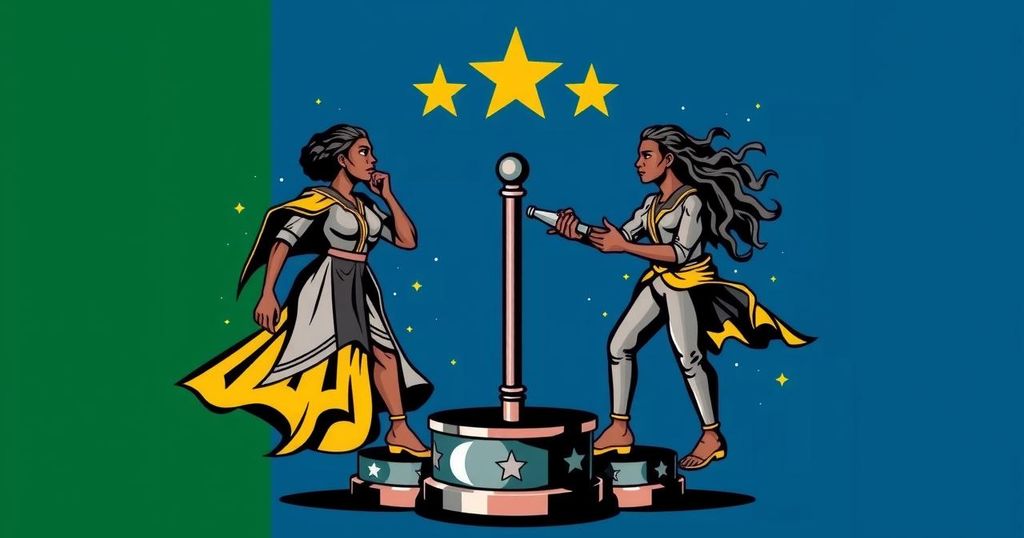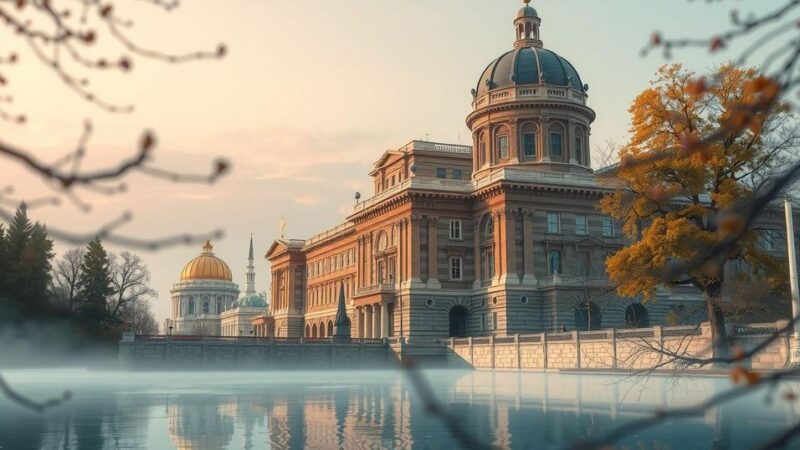The Democratic Republic of Congo is considering a constitutional review that could potentially extend President Félix Tshisekedi’s tenure. Supported by his party, Tshisekedi argues that the current constitution is inadequate and needs reform to better reflect local realities. However, the opposition is staunchly against any changes, fearing they are tactics to consolidate power. The Catholic Church has also expressed concerns about the potential destabilization this issue may cause.
The Democratic Republic of Congo (DRC) is contemplating a revision of its constitution, a move that has stirred considerable concern among the opposition regarding potential motives to extend President Félix Tshisekedi’s time in office. Augustin Kabuya, the interim chairman of Tshisekedi’s party, stated that the current constitution has demonstrated limitations in managing public power. President Tshisekedi emphasized the need for a comprehensive constitutional reform, asserting that the existing laws fail to reflect Congolese nationalism as they were created by foreign entities. He announced plans to form a national commission to develop a new constitution that aligns closely with local realities in the coming year. Historically, the constitution was established in 2006 following a referendum intended to break free from a cycle of violent power struggles. While opposition figures previously resisted changes proposed by former President Joseph Kabila, the current leadership sees an opportunity to initiate reforms. Notably, no official announcements have been made regarding the potential alteration of term limits, yet within Tshisekedi’s party, there are indications that some leaders perceive the president as only having served a fraction of his two terms due to procedural delays in governance following elections. The opposition remains united in its resistance to any constitutional modifications, alleging that such changes are aimed at consolidating power. Key opposition leader Moïse Katumbi has asserted that the revision is to ensure Tshisekedi and his associates maintain power indefinitely. Another prominent opposition figure, Martin Fayulu, is committed to obstructing any attempts to alter the constitution, arguing that it does not hinder effective governance. The Catholic Church has also voiced its opposition, warning that constitutional changes could further destabilize an already troubled nation. Thus, while President Tshisekedi positions the constitution revision as necessary for progress, the political landscape is marked by deep-seated suspicion and widespread dissent among opposition leaders and civil society representatives, suggesting that any attempt to amend the constitution may lead to significant political upheaval.
The discussion surrounding the potential revision of the DRC’s constitution emerges in a historically tumultuous political climate. Since its establishment in 2006, the constitution has been a pivotal element in governing and electoral processes in the country, yet it has also been a focal point of contention among political factions. The initial aim of the constitution was to facilitate a peaceful transition of power and establish a democratic framework. Past attempts to modify it have often been met with fierce resistance, underscoring the sensitivities associated with constitutional governance in the DRC, particularly in the context of maintaining institutional integrity and democratic principles. The current administration’s pursuit of constitutional reform is viewed with skepticism, reminiscent of previous efforts by former leaders to extend their presidential tenures, which has heightened fears of potential authoritarianism.
In conclusion, the proposed constitutional review in the DRC ignites a complex dialogue marked by historical grievances and political caution. While President Tshisekedi advocates for reforms to address perceived inefficiencies and reflect Congolese identity, the opposition remains vigilant against moves perceived to be aimed at prolonging his presidency. The situation underscores the delicate balance of power in Congolese politics, where calls for constitutional changes are met with significant skepticism and opposition, further complicating the nation’s path toward stable governance.
Original Source: www.monitor.co.ug







